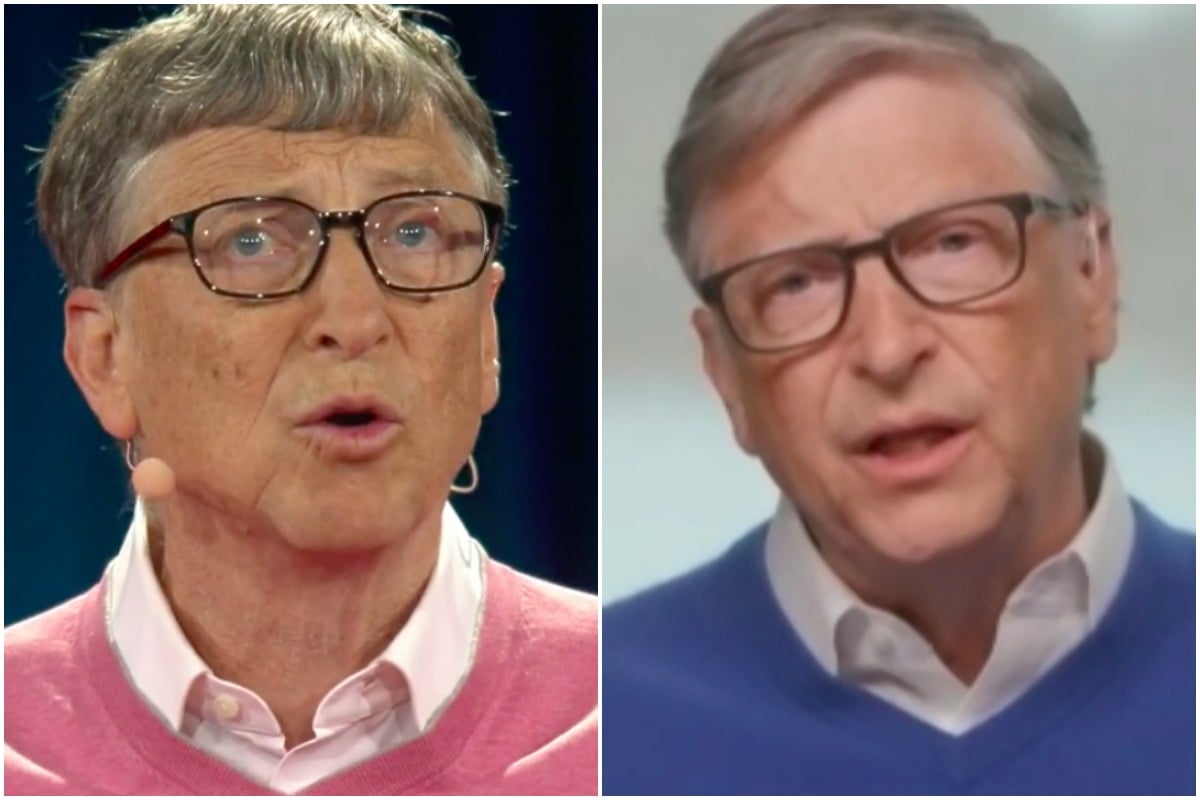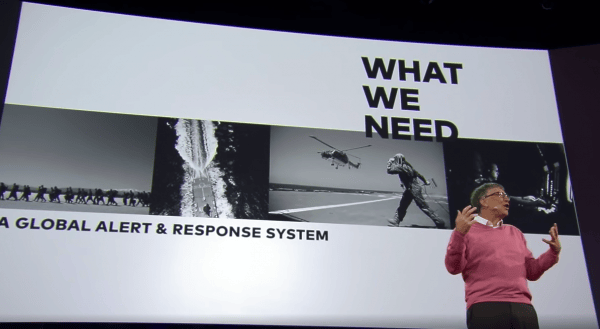
“If anything kills over 10 million people in the next few decades, it’s most likely to be a highly infectious virus rather than a war. Not missiles but microbes. We have invested a huge amount in nuclear deterrents, but we’ve actually invested very little in a system to stop an epidemic. We’re not ready for the next epidemic.”
Those are the words of billionaire Microsoft mastermind Bill Gates.
He said them during a TEDTalk in 2015, titled: The next outbreak? We’re not ready.
Five years later he was proven 100 per cent right, and now we’re paying the price with global deaths over 100,000 and rising.
WATCH: A snippet of Bill’s 2015 TEDTalk. Post continues after video.
During his 10-minute talk, Gates looked at Ebola as an example to explain his reasoning labelling the West African Ebola virus our “wake-up call”.
The epidemic, which lasted from 2014-2016, killed 11,300 people, and Gates said the reason the disease didn’t spread globally was due to pure luck (that it didn’t reach urbanised areas), the fact that it wasn’t airborne, and because of the hard work of health workers.


Top Comments
Go find his other TED Talk where he says the world is over populated and with the right vaccines he could reduce the population. Then go and look at his website called ID2020 where he wants everyone on earth to get a digital ID...THEN go listen to his recent interview where he states only vaccinated people with a digital ID of their vaccine should be allowed to resume normal life like travel etc. THEN you might put all the pieces of the Bill Gates puzzle together.
He NEVER said vaccines could reduce population, Do a google search. Check on snopes. It's not true. And the crazy conspiracy theory about about digital ID has been debunked. Just google it, you are re-posting lies and crazy myths.
lmao. If you watch his whole talk, you'll see that he says that if children are expected to live to adulthood (because of vaccines), their parents will CHOOSE to have less children. That's where the myth comes from.
The rest is also rubbish.
GATES for AUSTRALIAN PM. Better than Morrison, he can’t see past his nose. He had to be scared into doing anything.